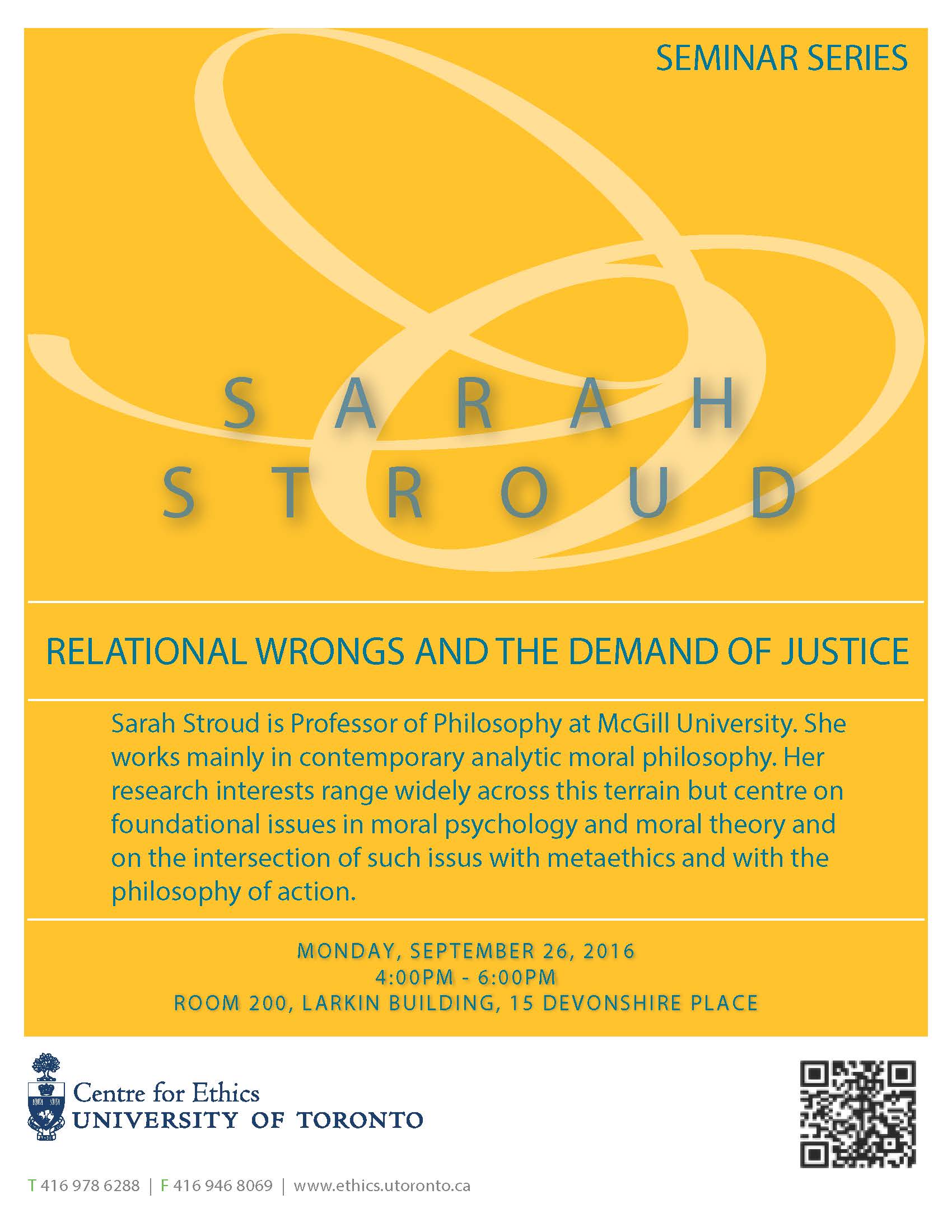Sometimes, but not always, when we act wrongly, we wrong someone (in particular). This fact is the starting point of my paper, which explores the moral terrain opened up by this transitive notion of wronging. Michael Thompson (2004) identifies the scope of such inherently relational or dyadic moral predicates with the domain of justice, but the theoretical grounds for attributing a relational wrong (rather than merely a wrong action) remain obscure. I examine and critique some approaches that have been floated in the literature before turning to consider whether relational wrongs reflect relationships in any robust or interesting sense.

Sarah Stroud, Department of Philosophy, McGill University
